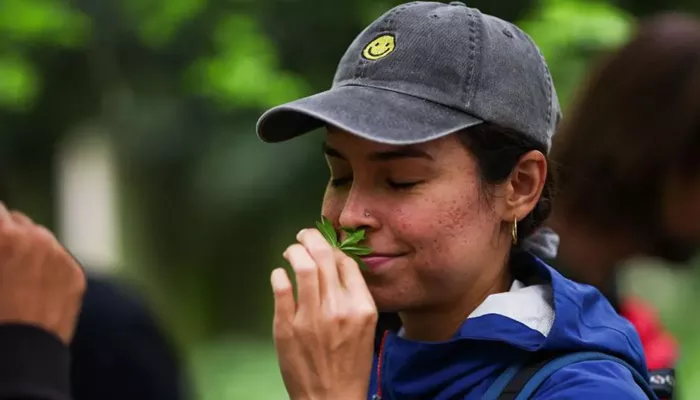London has become a hub for foraging enthusiasts, offering a surprising variety of edible plants across its green spaces, according to John Rensten, a foraging expert and author. “Even in a big city like London, many wild plants are thriving,” Rensten explains.
Rensten, the founder of Forage London, organizes foraging walks and courses throughout the city, helping locals connect with the natural landscape through “sustainable and educated” foraging practices. His goal is to cultivate environmental stewards who appreciate and protect urban green spaces.
One popular spot for these activities is Tower Hamlets Cemetery Park, which Rensten describes as “the most fertile and diverse square mile in the city.” Originally a Victorian cemetery, the park was designated as a public park and nature reserve in 1966, providing a unique haven for both plants and foragers.
Kenneth Greenway, the manager of Tower Hamlets Cemetery Park, also leads foraging tours, teaching participants how to identify and collect edible plants responsibly. For Rensten, who started foraging 25 years ago, the activity has transformed urban landscapes into places of interest, where plant growth can be observed through the seasons.
Hackney resident Louise Avery, who grew up foraging with her mother in the Isle of Mull, Scotland, is another advocate of foraging. She finds the blackberries and other wild plants abundant in London, often sourcing ingredients from local canals and marshes for her fermented tea company, L.A. Brewery. Avery emphasizes the importance of sustainable harvesting, advising foragers to never strip a plant bare, allowing it to regenerate.
Michelin-starred chef Adam Handling incorporates foraged ingredients, like meadowsweet as a vanilla substitute, into dishes at his Covent Garden restaurant, The Frog. Handling and his team collect herbs and edible flowers from areas like Clapham, and they carefully limit the amounts taken to preserve the plants.
For Wimbledon Common resident Ellora Coupe, foraging is a family tradition she now shares with her children. Each year, she secures a one-day foraging permit from local authorities and searches for mushrooms on the common. Her experience with foraging began as a child in Austria and has become a meaningful activity to pass on to her kids, helping them appreciate local biodiversity.
However, London’s foraging scene faces restrictions in certain areas. Foraging is prohibited in Royal Parks, such as Hyde Park and Richmond Park, due to the ecological importance of these habitats. Additionally, Epping Forest is off-limits under City of London Corporation bylaws. Wimbledon and Putney Commons enforce similar rules, allowing limited mushroom collection under permit.
Some, like Rensten, criticize these restrictions, advocating for educational efforts rather than outright bans. A spokesperson for Royal Parks counters that protecting plants, trees, and fungi is essential to maintaining balanced ecosystems, especially in areas like Richmond and Bushy Parks, which are home to free-roaming deer.
Organizations like the National Trust and Woodland Trust encourage responsible foraging for personal use. They emphasize following the Countryside Code—respecting and preserving nature so others can enjoy it. The Woodland Trust advises foragers to be cautious, using field guides to accurately identify species, as some plants are legally protected.
For Rensten and other urban foragers, London’s landscapes offer ample seasonal delights. Salad greens like stinging nettles and cow parsley, which flourish anew in autumn, are among the many edible plants that foragers can find. Foraging sustainably, they say, is not only a way to enjoy nature but also a means of safeguarding it for future generations.
Related topics:
- California Confiscates $353 Million Worth of Marijuana, Including Over 9,000 Plants in San Diego
- Checking for Signs of Drought Stress in Trees and Plants
- Fragrant Flowers: How Waterlilies Use Scents to Fight Aphids


